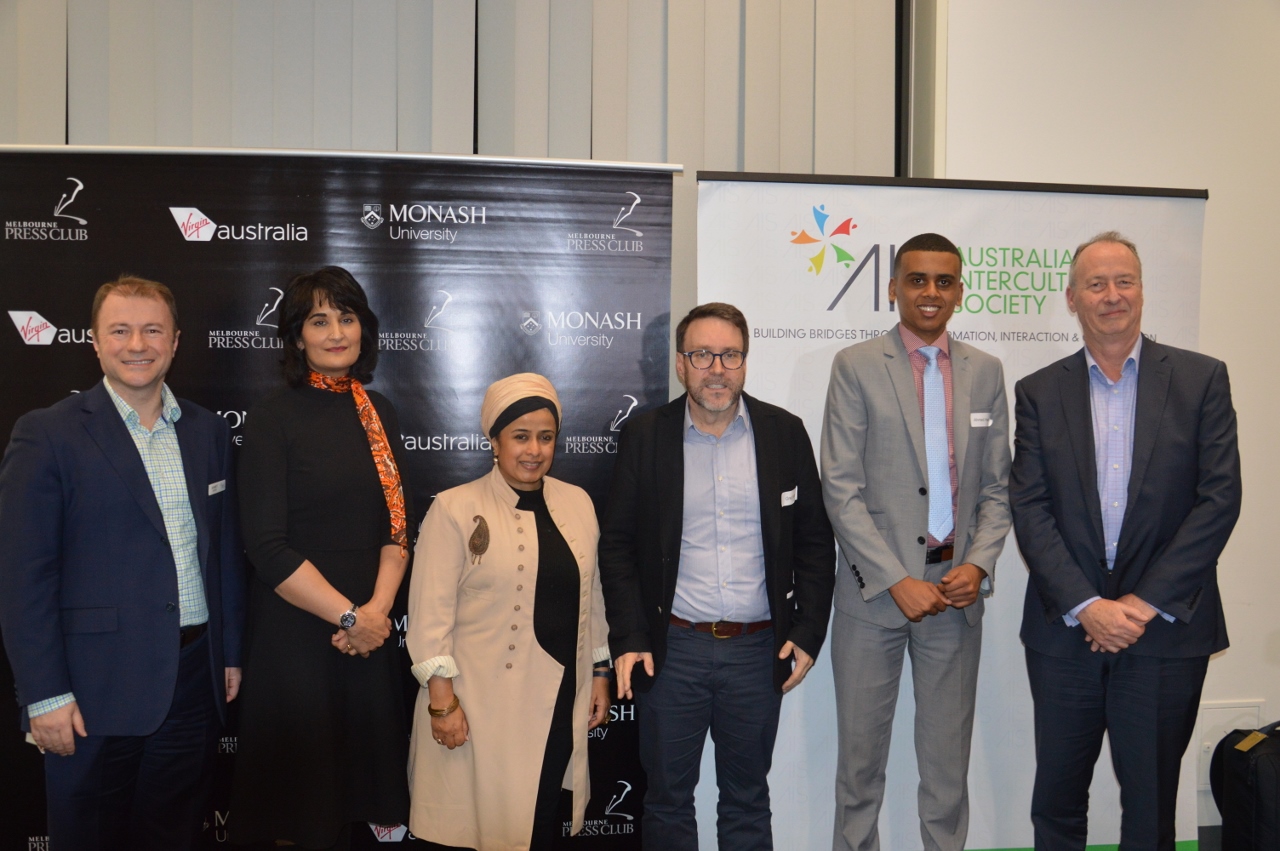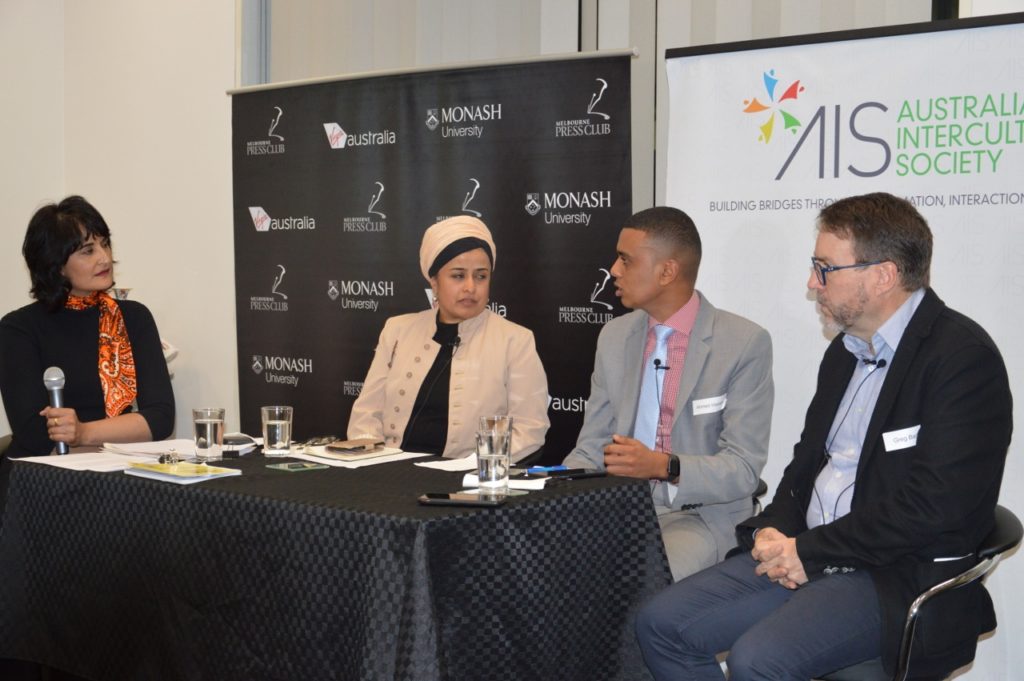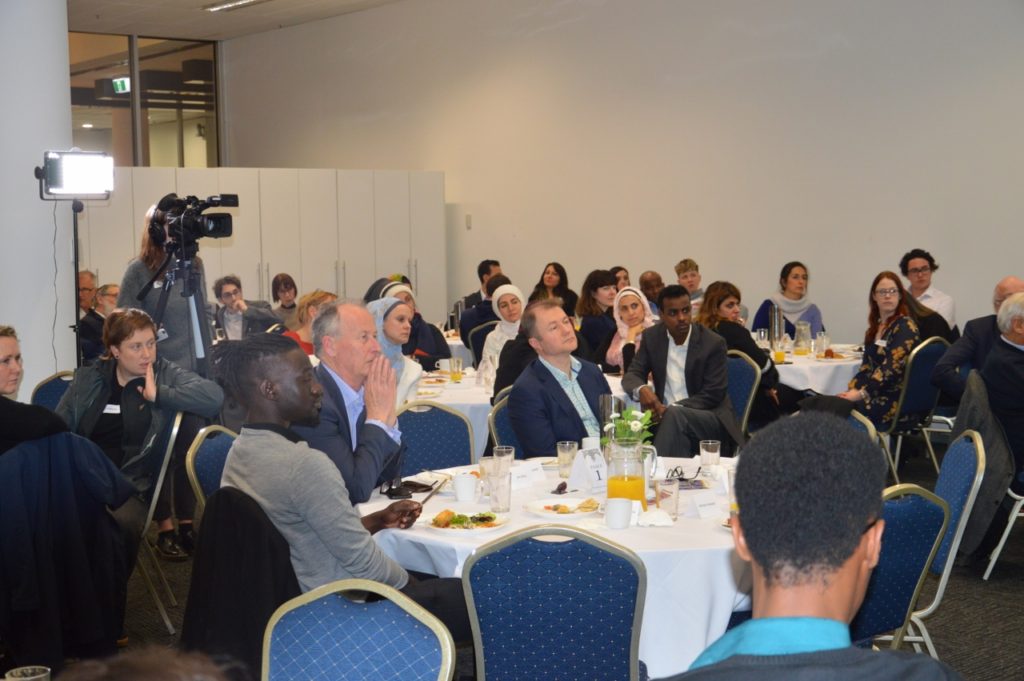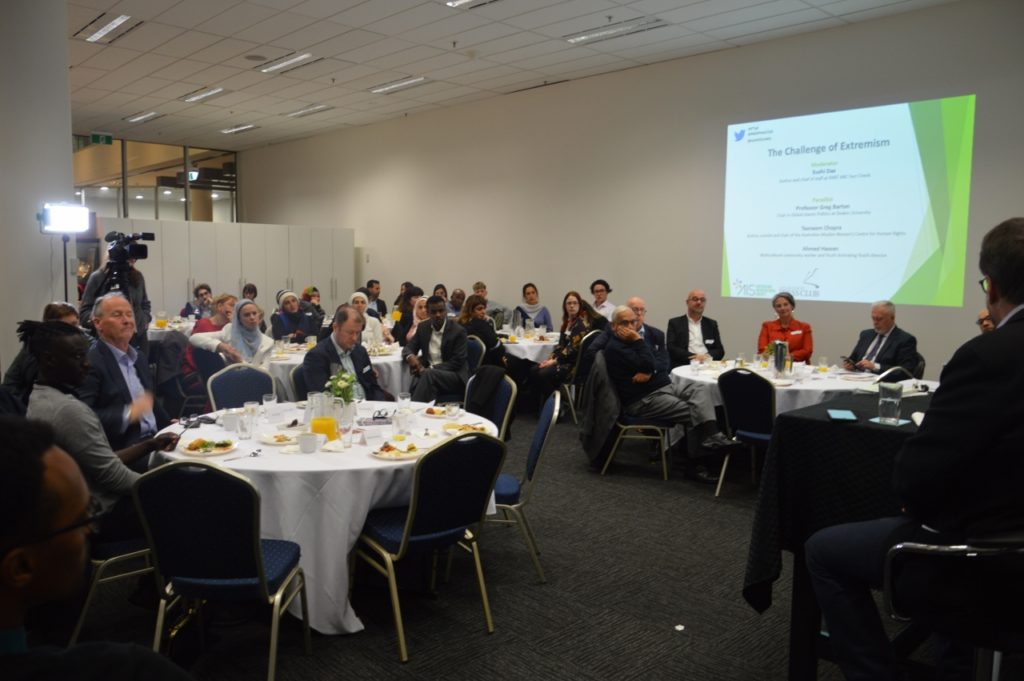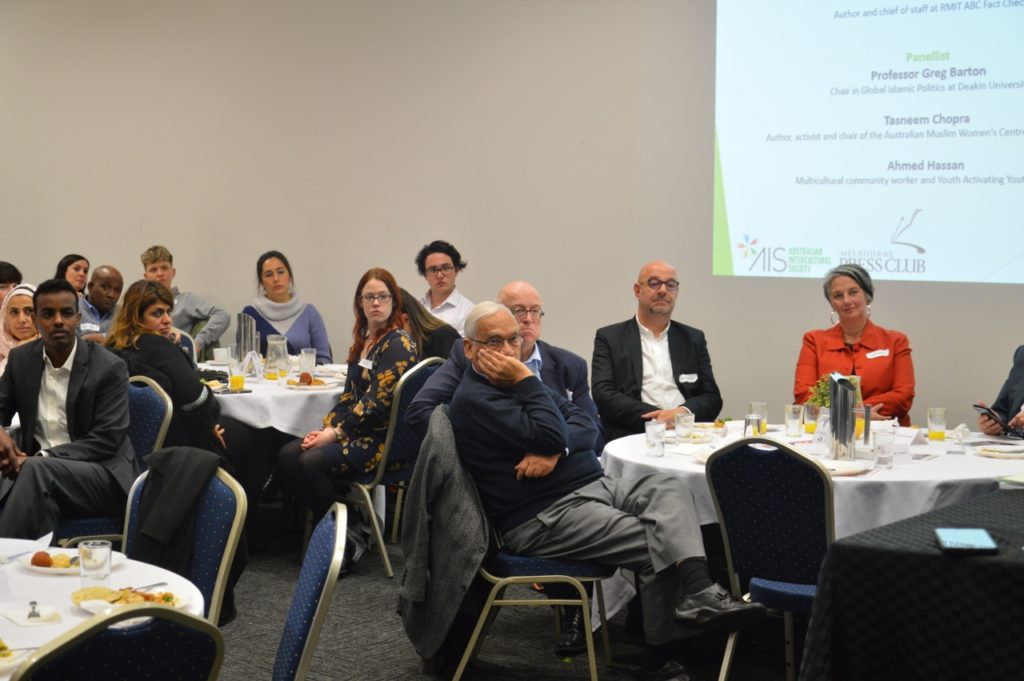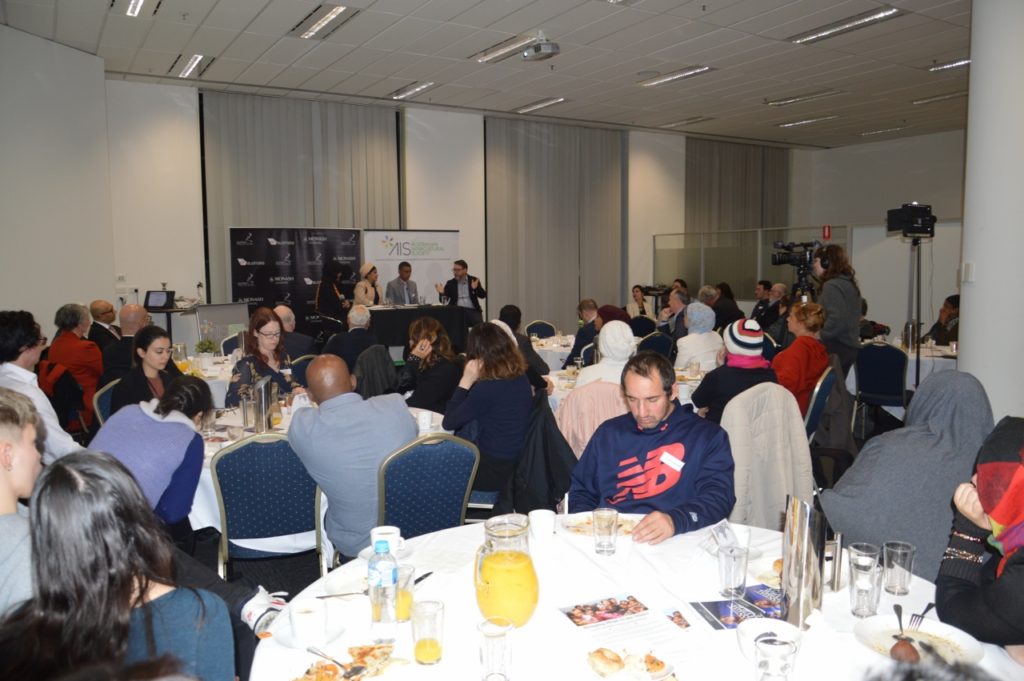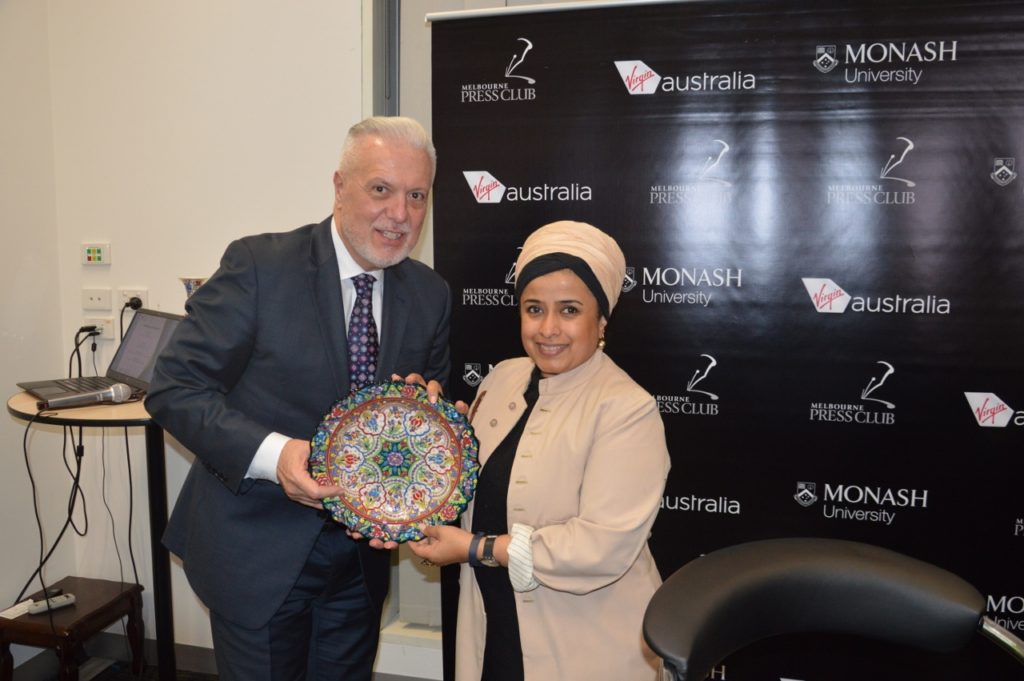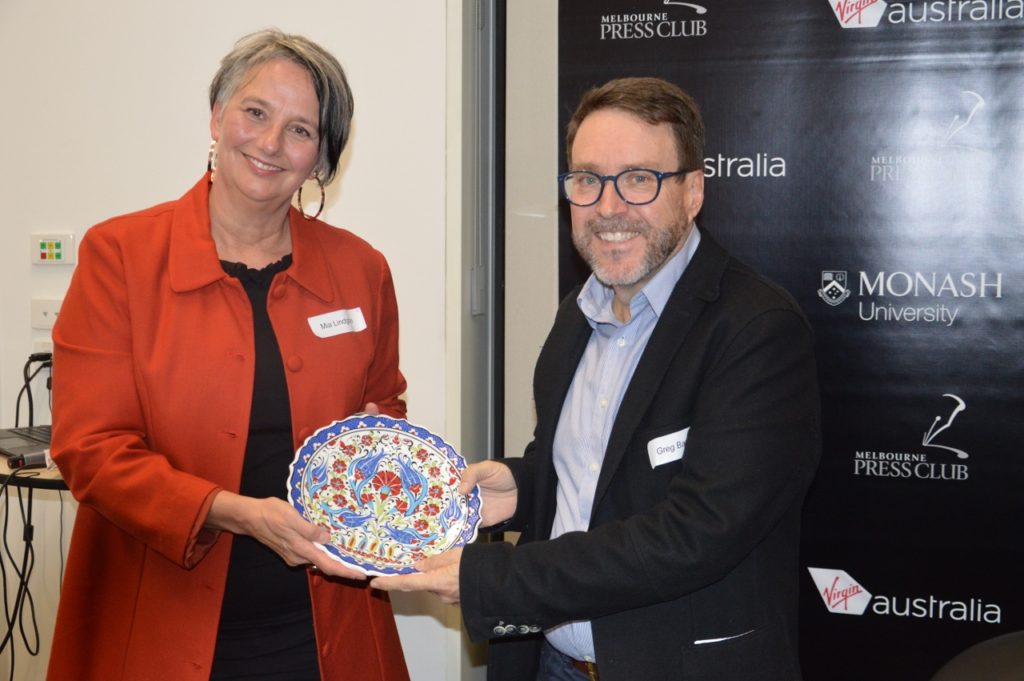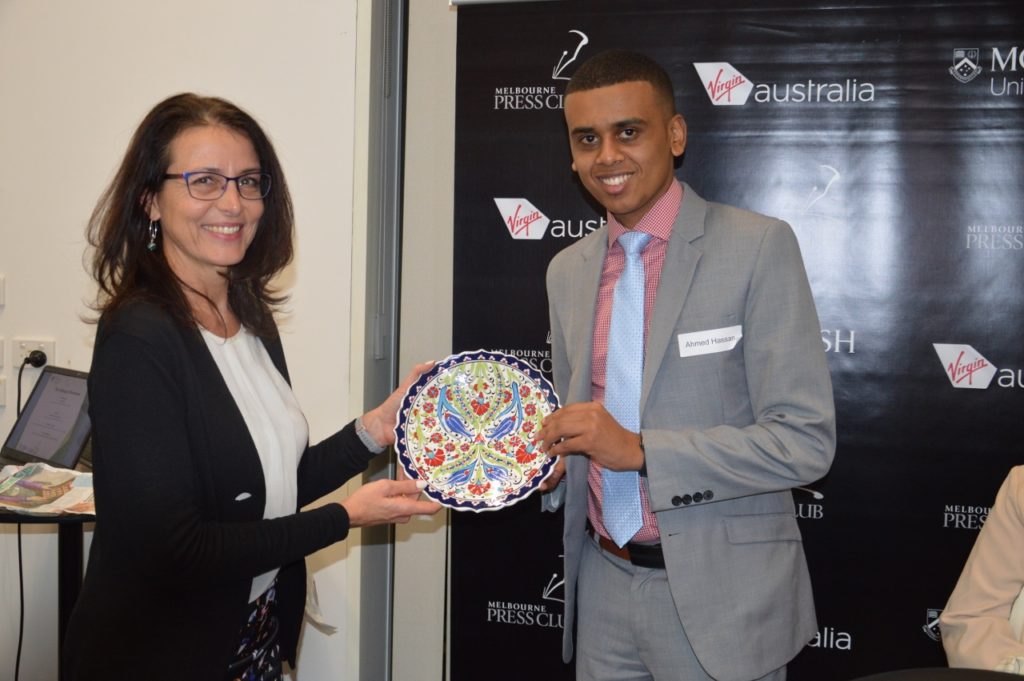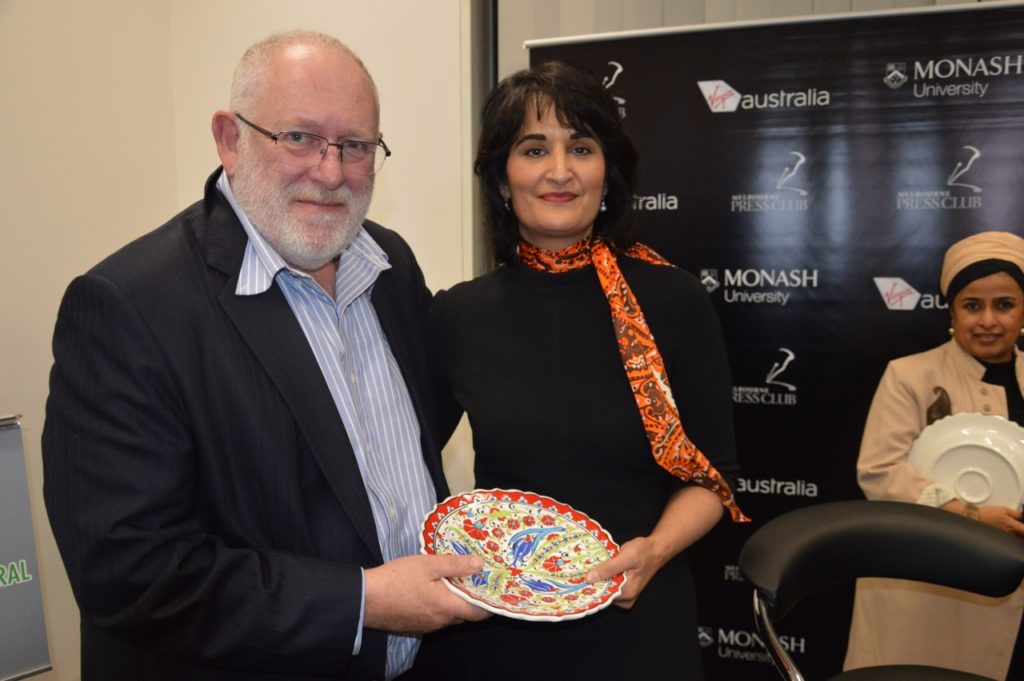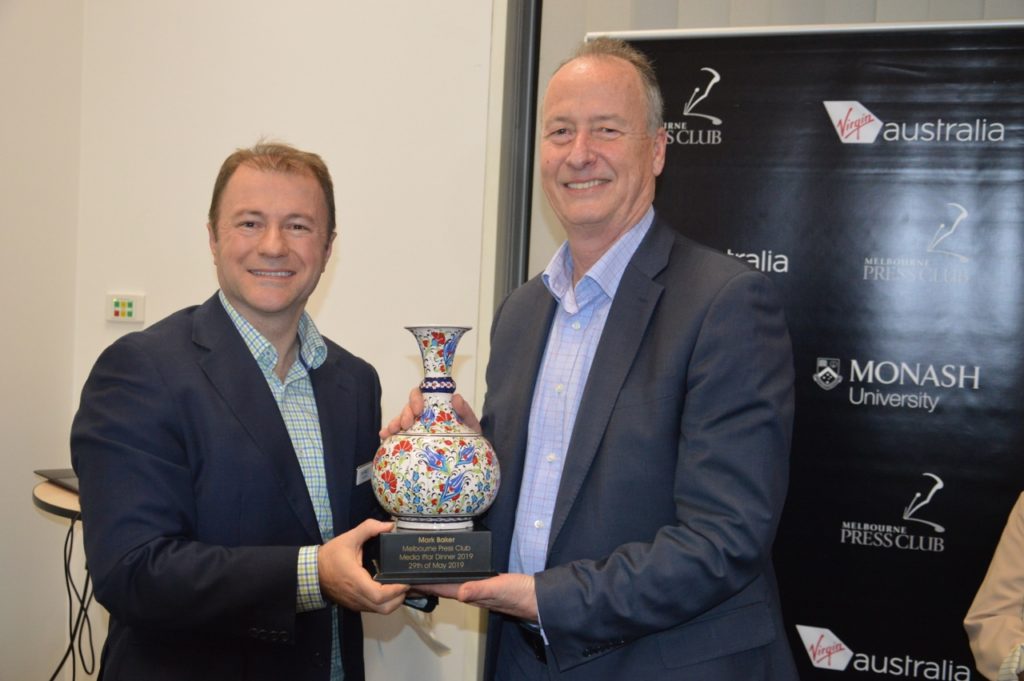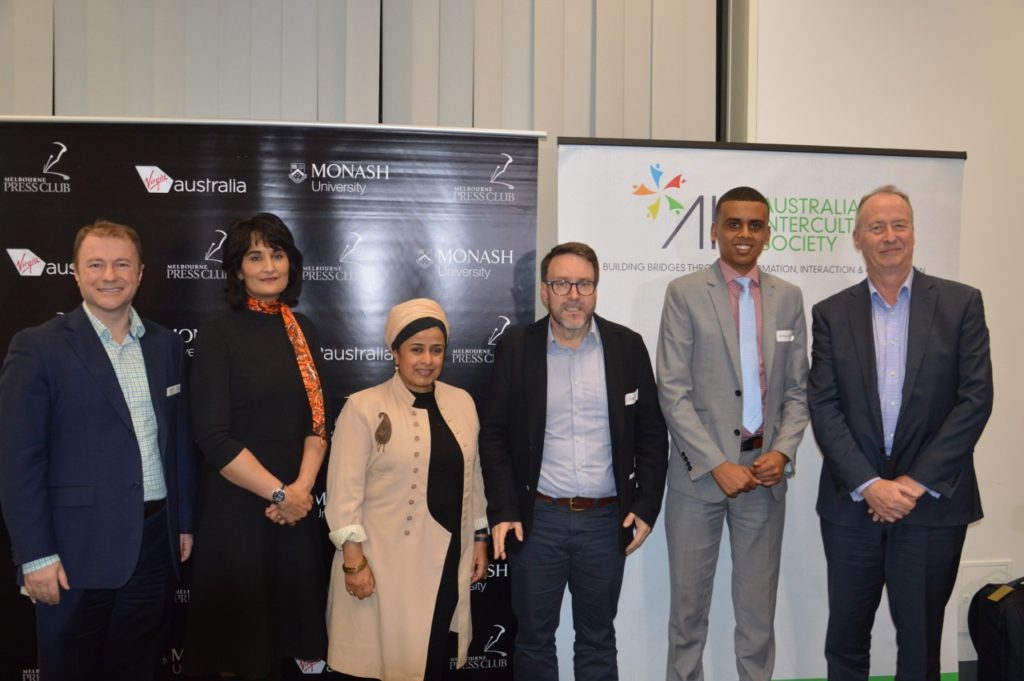Media Iftar Dinner
On Wednesday the 29th of May the Melbourne Press Club and the Australian Intercultural Society co-hosted the Media Iftar dinner which, sparked a very important conversation between members of Australian media and members of the general public about hate, education and understanding those who appear different than yourself.
The evening was co MC’d by CEO of the Melbourne Press Club, Mark Baker, and the Executive Director of the Australian Intercultural Society, Ahmet Keskin. The iftar dinner featured a panel of people from various backgrounds, which was lead by ABC News fact checker and author, Sushi Das, and consisted of the chair of the Australian Muslim Women’s Center of human rights, Tasneem Chopra, as well as Research Professor and Chair of Global Islamic Politics, Prof Greg Barton, and the director of Youth Activating Youth, Ahmed Hassan.
The panel was titled The “Challenge of Extremism” and discussed a range of topics, from the recent shooting in Christchurch to things like toxic masculinity, misogyny and the effects of social media in the spreading of news and ideologies.
On the topic of Christchurch, Tasneem discussed her reaction to the mass shooting that left so many dead and injured in their place of worship, stating that “from the Muslim community standpoint… I guess because of the geographic proximity of New Zealand and Australia, it was a horrifying experience to behold, but it wasn’t a surprise. And i think overwhelmingly the rise of Islamophobia and hate crimes that have been perpetrated against [Muslims] in the west is not something that is new, it has been evolving, it has been increasing, and threats against persons, against children, against school.. I mean from damages to physical buildings to threats of rape and murder being acted out upon Australian Muslims in the last five to ten years has come to such a point that we were just waiting for when it was going to be”. The panel discussed the “culture of islamophobia” in the world that Tasneem claims “has been sitting more and more comfortably in government in a way that makes it very easy for the proliferation of far right parties to develop”. Prof Barton stepped in to say “[Australia] has got addicted to the rhetoric of politics of fear”. He brought up members of the media “who have a pretty poor record for inflammatory language, probably not because they’re really far right themselves but they find it convenient to use this language, so there’s irresponsible behavior”.
They discussed ways in which these extremist acts affect society as well as actions that Australia as a whole can take to implement change in the mindsets that are created from a fear of the unknown. Tasneem points out a “constant distinctions between us and them” which Hassan followed by saying “it’s one persons act and everyone got heat for it…the impact that it had is how many young people will get rejected for an interview the next morning… because we’ve got an issue here brewing and you’ve made it bigger than it seems. People are not educated enough to see beyond the headlines and that’s what i think kind of upsets us, but makes our work more important, in a sense, where you have to continue educating those people about these issues”. He went on to discuss ways in which people would feel more comfortable with the minority groups that are viewed in a negative life, saying “we need to ensure we are giving them opportunities in employment, we are giving them opportunities at school. We know that every child that comes to this classroom is a young person that wants to participate, He’s got a respectful relationship for the country that he lives in…”. He explained that these normalcies are what prevent hateful acts, and it is our responsibility to be aware of the early signs of hate, “they start growing up and we say ‘who turned that into an extremist who’s carried out and killed like three people in the city’ – We’ve got to look at what to do before”. Prof Barton built off of this by saying “we need to pay more attention, I believe, to hateful extremism, to hate incidents, not necessarily hate crimes because a lot of things are hard to prove as a crime, but if we record that somebody has spoken with a racist language or in a disrespectful fashion, if we started to document that and pay attention, we might spot a pattern”.
The panel continued with incredibly insightful and thought provoking questions from the audience members regarding international political involvement in preventing hate, the relationship between the government and a nurturing community, and even the “Egg boy” who donated the $100,000 he raised for legal fees to the victims and families affected by the shooting in Christchurch.
The panel concluded, leaving many audience members wanting more. The evening came to a close with remarks from AIS Executive director Ahmet Keskin. We met with a few attendees after the event to get their final remarks on the evening.
George Donikian reflected on the evening, saying he believes it was “yet another innovative and progressive opportunity for the AIS to show to the media, the assembled media, the press club of Victoria just what’s at stake, what’s involved, how important it is to get the story right, from every angle, not just some angles. Perspective is key and this is a terrific opportunity to wet their appetite and open their eyes”. He continued on to say “I would love to see this particular platform be given massive exposure on either the SBS or the ABC or in fact both because the combined audience needs to see that range of diversity, those faces, those views spoken by people who care and have been affected by what’s going on so they provide a unique opportunity here for people who are affected, not someone who thinks they understand it, these people are living it…our two national broadcasters should look long and hard at this serious work that is being done and maybe try and replicate it and not put white people in these, but have the mix that we saw tonight which makes a humongous difference to the level of discussion and what comes out of it”.
World Print Editor & Deputy World Editor The Age and The Sydney Morning Herald, Lia Timson, spoke of the role of the general media in creating a more inclusive society. “we don’t live isolated. We might be an island, but culturally, globally, economically, politically, we’re not an island. And we can’t live in this ‘us and them’ world, we need to understand that other people often have the same problems, or similar problems, have the same pain and suffering and the same opportunity to improve their lives and I think the media has a big role in that”.
Greg Barton brought attention to the way that programs such as these can truly change your outlook on others as well as yourself. “It’s been a very practical initiative… if you break bread with somebody, you see them as a human being, you hear their stories, you meet their families, you say ‘look these guys are just like us… i can relate to that person’. I didn’t recognize them because of the way they dressed but now I talk to them, I look beyond the dress and realise they’re a human being with the same dreams and aspirations as I have, so i’m not so anxious about somebody looking different… it’s one small thing, but it’s an important thing to be doing”.
Audience members left feeling intrigued and excited about the future and how they could effect change in society. This program promoted a cultural understanding you cannot get if you do not put in the time and have the conversation.

